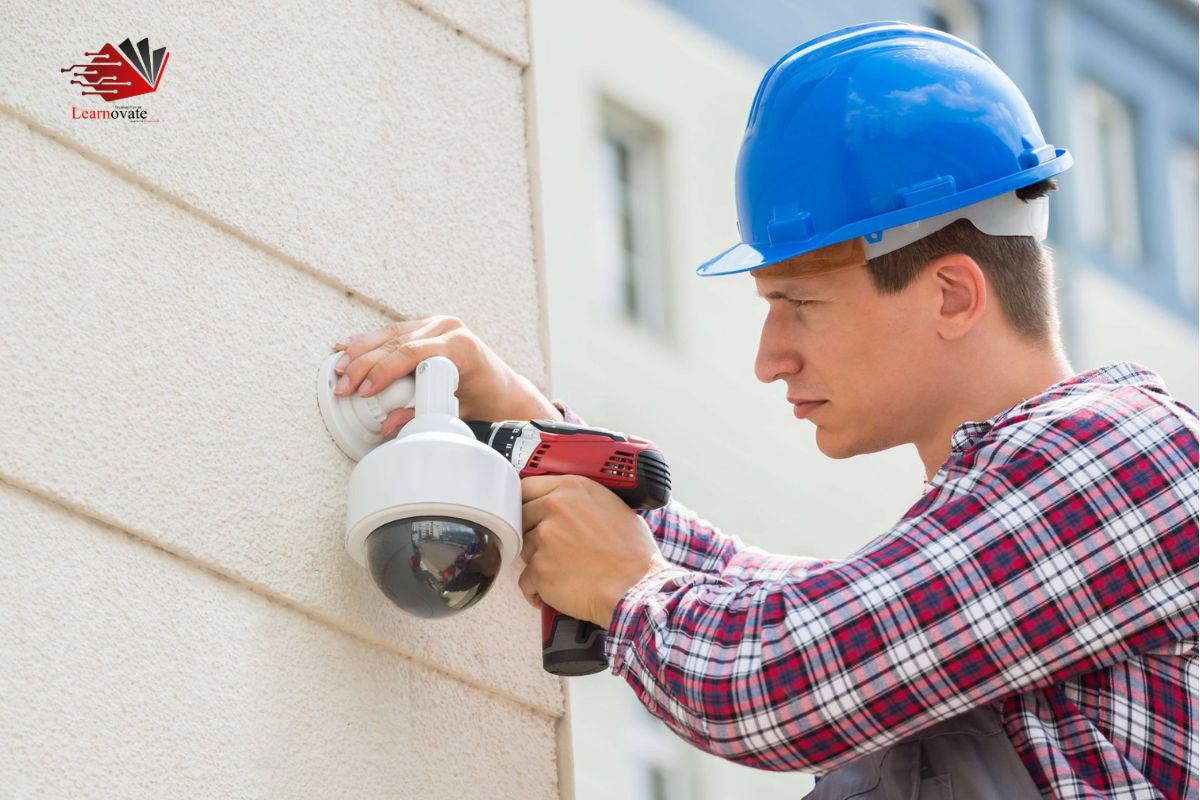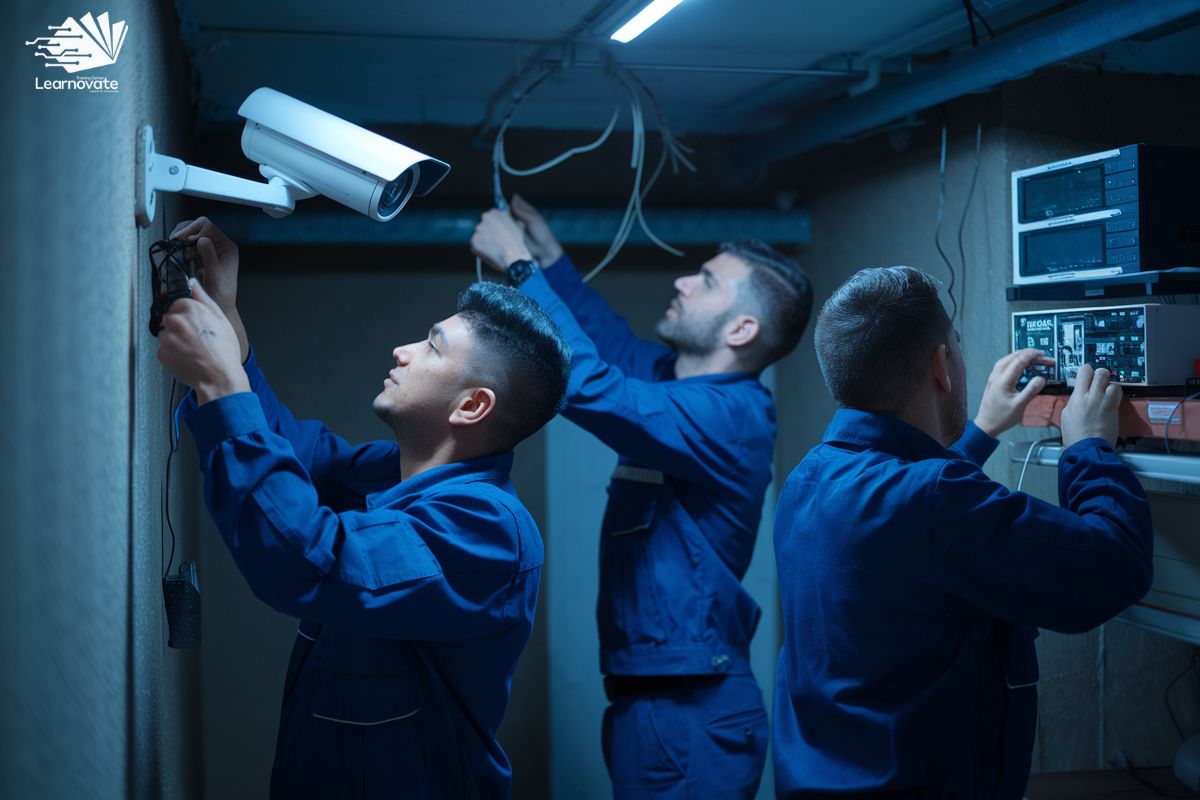The security industry is growing rapidly, and CCTV installation is one of the most in-demand skills in this field. A CCTV installation course teaches you how to install and maintain surveillance systems, making you a valuable asset to businesses and homeowners who prioritize safety. Whether you’re looking to start a new career or expand your skill set, this guide will explain everything you need to know about CCTV installation courses and how they can help you achieve your career goals.
What is a CCTV Installation Course?
A CCTV installation course is a specialized training program designed to teach individuals how to install, configure, and maintain Closed-Circuit Television (CCTV) systems. These systems are commonly used for security purposes in homes, businesses, and public spaces. The course covers both theoretical and practical aspects, ensuring you have the knowledge and hands-on experience to handle various types of surveillance equipment.
Key Topics Covered:
- Introduction to CCTV technology
- Types of cameras and lenses
- Wiring and cabling techniques
- DVR/NVR setup and configuration
- Networking and remote access
- Troubleshooting common issues
Skills You’ll Learn in a CCTV Installation Course
Enrolling in a CCTV installation course equips you with a wide range of technical and practical skills. Here are some of the key skills you’ll gain:
1. Technical Knowledge
You’ll learn the basics of how CCTV systems work, including:
- Types of cameras (analog, IP, PTZ cameras)
- Storage devices like DVR (Digital Video Recorder) and NVR (Network Video Recorder)
- Power supply units and voltage requirements
2. Installation Techniques
Practical lessons will teach you how to:
- Mount cameras securely in various locations
- Connect cameras to power sources and recording devices
- Install and configure cables for seamless video transmission
3. Networking Skills
Modern CCTV systems often require network integration. You’ll learn:
- Setting up IP cameras on a network
- Configuring routers for remote access
- Securing systems against unauthorized access
4. Problem-Solving Abilities
You’ll develop skills to troubleshoot issues such as:
- Poor video quality
- Connectivity problems
- Equipment malfunctions
Career Opportunities After a CCTV Course
Completing a CCTV installation course opens the door to numerous job opportunities. Here are some of the most common roles you can pursue:
1. CCTV Technician
As a CCTV technician, your primary responsibility will be installing and maintaining surveillance systems for clients. This role is ideal for individuals who enjoy hands-on technical work.
2. Security System Specialist
This role involves designing and implementing complete security solutions, including CCTV systems, alarm systems, and access controls. It’s a great option if you want to offer comprehensive services to businesses and organizations.
3. Freelance Installer
If you prefer flexibility, you can work as a freelance CCTV installer. This allows you to set your own schedule and take on projects that align with your interests.
4. Sales and Support
If you have strong communication skills, you can work in sales and support for security equipment companies. Your technical knowledge will help you recommend the right products to customers and assist them with troubleshooting.
5. Entrepreneur
With the right experience, you can start your own security installation business. This allows you to work with a variety of clients and potentially grow a team of technicians.
Benefits of Learning CCTV Installation
Enrolling in a CCTV installation course offers numerous advantages for your career and personal growth. Here are some of the key benefits:
1. High Demand for Security Solutions
The need for security is increasing worldwide. Businesses and homeowners are investing in surveillance systems, creating a steady demand for skilled CCTV installers.
2. Profitable Career Opportunities
CCTV installation jobs often come with competitive salaries. Freelancers and entrepreneurs can earn even more by taking on multiple projects.
3. Practical Learning
CCTV installation courses provide practical, hands-on training. This ensures you’re job-ready and confident in your abilities.
4. Short Training Period
Unlike traditional degree programs, most CCTV installation courses can be completed in a matter of weeks, allowing you to start your career quickly.
5. Versatile Skill Set
The skills you learn in a CCTV course can be applied to other areas, such as IT networking, electronics, and security system design.
How to Choose the Right CCTV Installation Course
Selecting the right course is essential for your success. Here are some tips to help you choose:
-
Check the Curriculum:
- Ensure the course covers all necessary topics, including installation, troubleshooting, and networking.
- Look for Hands-On Training:
- Practical experience is crucial for mastering CCTV installation.
-
Read Reviews:
- Look for feedback from past students to gauge the course’s quality.
-
Consider Certification:
- A certification can boost your credibility and make you more attractive to employers.
-
Compare Costs:
- Choose a program that fits your budget without compromising on quality.
Steps to Get Certified in CCTV Installation
-
Enroll in a Course:
- Choose a reputable institution that offers comprehensive training.
-
Complete the Training:
- Attend all classes and complete the required practical assignments.
-
Pass the Assessment:
- Most courses include an assessment to test your knowledge and skills.
-
Receive Your Certification:
- Upon successful completion, you’ll receive a certificate that proves your expertise.
-
Start Gaining Experience:
- Work on small projects to build your portfolio and confidence.
Final Thoughts
A CCTV installation course is an excellent investment for anyone interested in the security industry. It equips you with valuable skills, opens doors to rewarding career opportunities, and allows you to contribute to a safer world. Whether you’re a beginner or looking to expand your technical knowledge, this course can help you achieve your goals. Start your journey today and build a successful career in CCTV installation!
FAQs About CCTV Installation Courses
1. How Long Does It Take to Complete a CCTV Course?
Most courses can be completed in 2-4 weeks, depending on the program’s intensity and your schedule.
2. Do I Need Any Prior Experience?
No prior experience is necessary. These courses are designed for beginners and cover all the basics.
3. What Equipment Will I Work With?
You’ll typically work with:
- CCTV cameras (analog and IP)
- DVR/NVR systems
- Networking tools (cables, routers, switches)
4. Are There Online CCTV Installation Courses?
Yes, many institutions offer online courses with video tutorials and virtual labs. However, hands-on training is recommended for practical experience.
5. What is the Average Salary for a CCTV Installer?
The average salary varies by location and experience but typically ranges from $30,000 to $50,000 per year. Freelancers can earn more based on project volume.
















